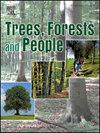An investigation on the local community's traditional knowledge of Iranian mountain forests using a qualitative assessment
IF 2.9
Q1 FORESTRY
引用次数: 0
Abstract
Identifying the role and position of local communities in forest management, both in terms of different forms of harvesting and indigenous knowledge, is essential for proper forest planning. Hence, the aim of this study is to investigate the role of local communities in the management of mountain forests in the Zagros region of Iran that local communities are the most important factor in forest planning. In forests that have public ownership and simultaneously local communities are highly dependent on forest resources, it is necessary to consider the role of local communities in goal-setting for forest management. Concepts and principles of social or community-based forestry can be used for such situations in forests that have public ownership. In this condition, local communities try to manage the ecosystem with their indigenous knowledge. Accordingly, a traditional system for forest management needs to be formed in these ecosystems. This study examines the evidence of forest management in the Zagros forests of Iran which have mountainous heights with traditional knowledge of local communities. Participatory rural appraisal and interties with critical informants of local communities are applied in this study. Systematic analysis and PEST (Political, Economic, Social, Technological) framework strengthened these methods. Indigenous knowledge of resource management was registered for policy-making in forest management. Results show this indigenous knowledge has the capability of cooperative planning by the forest managers so that local community benefit from the ecosystems with some controls and adjustments in their relationship with the ecosystems, and the sustainability of the ecosystems is also maintained. Setting goals in managing such forests should be subject to both the demands of the public sector and local communities. We conclude appropriate policies to forest resources such as making contracts between forest management and local communities as well as modifying the social demands of local communities towards sustainable resource management in these forests.
利用定性评估对当地社区对伊朗山地森林的传统知识进行调查
在不同形式的采伐和土著知识方面,确定当地社区在森林管理方面的作用和地位,对于适当的森林规划至关重要。因此,本研究的目的是调查当地社区在伊朗扎格罗斯地区山林管理中的作用,因为当地社区是森林规划中最重要的因素。在拥有公共所有权而同时当地社区又高度依赖森林资源的森林中,必须考虑当地社区在制定森林管理目标方面的作用。社会或社区林业的概念和原则可用于公有制森林的这种情况。在这种情况下,当地社区试图用他们的本土知识来管理生态系统。因此,需要在这些生态系统中形成传统的森林管理制度。本研究考察了伊朗扎格罗斯森林的森林管理证据,该森林拥有山区高地,具有当地社区的传统知识。本研究采用参与式农村评估和与当地社区关键线人的联系。系统分析和PEST(政治、经济、社会、技术)框架加强了这些方法。在森林管理的决策中登记了土著资源管理知识。结果表明,这种土著知识具有森林管理者协同规划的能力,通过对当地社区与生态系统的关系进行控制和调整,使当地社区从生态系统中受益,并保持生态系统的可持续性。制定管理这类森林的目标应符合公共部门和当地社区的要求。我们制定适当的森林资源政策,例如森林管理部门与当地社区订立合同,以及改变当地社区对这些森林资源可持续管理的社会需求。
本文章由计算机程序翻译,如有差异,请以英文原文为准。
求助全文
约1分钟内获得全文
求助全文
来源期刊

Trees, Forests and People
Economics, Econometrics and Finance-Economics, Econometrics and Finance (miscellaneous)
CiteScore
4.30
自引率
7.40%
发文量
172
审稿时长
56 days
 求助内容:
求助内容: 应助结果提醒方式:
应助结果提醒方式:


